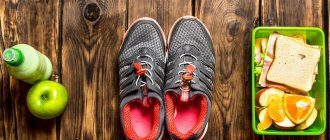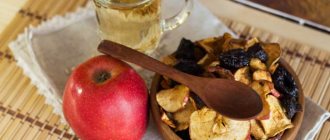Extra pounds not only spoil a person’s appearance and, as a result, reduce his self-esteem, but also have a detrimental effect on health. Nutritionist advice is intended for people with a normal daily routine. But what should those who work at night and for whom the well-known rule “don’t eat after 6” do is a real absurdity? This is what we will talk about in this article.
Basics of proper nutrition for all work schedules
If you want to keep yourself in shape, then when working at any time of the day you should adhere to the following standards:
- Before leaving for work, eating should be mandatory.
- The interval between meals should vary from 3 to 5 hours.
- Evenly distribute calories between meals.
- Drink at least 2 liters of water per day. Tea, coffee, juice and other drinks do not count - only water.
- The last meal, not a snack, should be 2 hours before going to bed.
Taking into account all the above standards and strictly following them, you can not only keep yourself in shape, but also lose a little weight.
Nutrition Basics for Night Shift Workers
Nutrition Basics for Night Shift Workers
The most important rule on how to eat properly if you work at night is not to overload your stomach between 11:00 p.m. and 6:00 a.m. At this time, it, as well as the pancreas and liver, slow down and recover, so food will not be digested normally (with all the ensuing consequences). At night, if you want to eat, you can drink kefir, yogurt, eat fruit or a couple of breads.
The daily routine should contain 3 full meals and snacks. The first dose is during the day, after waking up from sleep, then before work (but a couple of hours before 11 pm), and morning lunch after work. As mentioned above, during work and during the day you can have a couple of dietary snacks with yogurt, fruit or tea (coffee) with bread. What exactly to eat for breakfast, lunch and dinner should be chosen depending on your own biorhythms.
How to eat if you work at night?
The idea that most of what you eat late in the evening turns into fat reserves on various parts of the body in the morning is absolutely correct. But those who work at night cannot completely refuse food. After all, being awake is only half the battle. In addition, you need to fulfill your duties, and do it not “carelessly”, but as needed.
The best way out of this situation is a light snack. Fried potatoes or, for example, cake will not work.
Where do the roots come from?
Where the roots grow from
Regardless of what type of biorhythm the body belongs to (“owl”, “lark” or “dove”), the general trends in the work of all systems and organs are the same: during the day - intensive work, at night - recovery. And violation of this principle leads to dangerous consequences.
Firstly, night owls usually experience a decrease in the level of the happiness hormone in the blood; they often feel depressed, apathetic, and are susceptible to depression and mood swings. What do we do when we are sad? That's right - we go to the Great White Friend (that is, to the refrigerator) and scoop out everything tasty from there. Not only is this harmful in itself, but the body also does not have time to process this yummy food (after all, we usually eat at night, too). The result (aka excess weight) is obvious. As well as other protruding and not so protruding parts of the body.
In addition, working at night is a lot of stress for the body (it, being naive, is used to sleeping at night), and if you load it with food, the stress will become double. So problems with the gastrointestinal tract and excretory system are not so illusory.
Examples of meals for night work schedules
- vegetable salads. They can be slightly salted and seasoned with vegetable oil or low-fat sour cream.
- whole grain breads.
- a handful of nuts or seeds.
- cottage cheese, kefir and other fermented milk products.
If you ignore this advice, then in the morning you can completely empty the refrigerator.
One important point cannot be overlooked. Lack of sleep is one of the most common causes of obesity. Therefore, you need to sleep at least 6 hours a day. At the same time, the quality of rest should be maximized. For this:
- going to bed at the same time - this normalizes metabolism;
- use only a comfortable bed, fresh and pleasant-to-touch bed linen; turn off the TV, radio and everything else that makes even the slightest sounds;
- after a night shift, darken the room;
- don’t try to get enough sleep on the weekend without throwing off your internal clock - if you really want to sleep, you can rest for a couple of hours during the day.
Night owl mode
Mode for night owls
Everything is a little different here. How to eat properly if you work at night is easier for owls to understand, because they are night owls by nature. But there is a danger here: the brutal appetite also wakes up at night, but it still needs to be moderated (otherwise fat “pillows” on the thighs cannot be avoided). Therefore, the approximate diet for “owls” is as follows.
First meal (16-18 hours): hearty food - meat, fish, legumes, side dishes, in general, everything your heart desires (without excesses, of course).
Second meal (20-22 hours): you can also eat a heavier meal, but without carbohydrates. Only proteins (meat, fish, cottage cheese) and vegetables. Tea.
Third meal (7-8 hours): light snack with a sandwich or vegetable salad, coffee or tea with fruit.
And most importantly, don’t break your routine on weekends; trying to get enough sleep during these days doesn’t lead to anything good.
How to eat for heavy physical labor workers
Physical labor uses up much more energy than mental labor. It is not forbidden to eat lard with bread during the day, but at night it is forbidden under any circumstances. The fact is that in the dark the amount of digestive enzymes in the human body decreases. For this reason, you should avoid fatty foods.
- Before you start: porridge (buckwheat, rice, oatmeal) or durum wheat pasta + meat or fish + vegetable salad.
- At night: sandwich with cheese, omelet, cottage cheese or kefir (1 - 2 times).
- Before bed: any porridge + a couple of fruits.
How working the night shift affects your health and physique
Working night shifts can have a negative impact on your energy, health and physique. In this article, we will tell you how you need to adjust your diet to maximize your progress!
The phrase "night shift" most often conjures up images of emaciated zombies behind convenience store counters, but in reality, a huge number of different jobs require regular night shifts. Research claims that many people face some pretty serious health problems just because of their work schedule.
Statistically, even die-hard fitness freaks who work out six days a week, maintain a lean physique and follow a healthy diet begin to rapidly gain weight and reduce their workouts to two days a week due to night work. They begin to abuse junk food and at the same time constantly suffer from painful hunger.
It is quite obvious that this is only a small part of the negative aspects that are fraught with the transition to a night work schedule. In fact, a study published in the journal Chronobiology International found that night shift work is a major factor in increased excess weight and abdominal fat stores.
Of course, with a non-standard work schedule, night snacks are sometimes inevitable, but they should not become an insurmountable obstacle to improving your physique. Find out why night shift work often causes weight gain and what you need to do to stay in top physical shape!
Result of jet lag
The main cause of numerous metabolic disorders that occur as a result of night shift work is lack of sleep. Disruption of natural circadian rhythms - cyclical fluctuations in the intensity of various biological processes associated with the change of day and night - complicates the process of healthy sleep. Add to this high levels of busyness and a change in daily routine, and it becomes obvious that people who work at night sleep, on average, significantly less than those who rest during the traditional night time.
According to a study that has been conducted since 1960 and covers tens of thousands of subjects, people who sleep on average less than 7 hours a night tend to have a higher BMI (body mass index) compared to those who mostly rest more than 7 hours.
Chronic lack of sleep clearly manifests itself in the form of short-term fatigue and irritability, but what is much worse, lack of sleep gradually provokes a series of adaptations that negatively affect your health and physique in the long term.
Negative consequences of working the night shift
1. You burn fewer calories throughout the day
According to a study conducted by scientists from the US National Academy of Sciences, one of the consequences of disrupting the natural sleep-wake cycle is burning an average of 52-59 fewer calories per day compared to people who follow a normal sleep schedule.
This amount may seem insignificant, but over the course of a week you will burn 364-416 fewer calories. So a work schedule that would seem to put you in a caloric deficit may actually result in a slight surplus.
Solution: Given the reduction in daily energy expenditure, it is recommended to reduce daily calorie intake by 5%.
2. You burn fewer calories per meal
Digestion, absorption and distribution of nutrients accounts for approximately 10% of your daily energy expenditure. The scientific name for this phenomenon is the thermic effect of food (TEF).
A study published in The American Journal of Clinical Nutrition found that subjects who ate their meals at night experienced significantly less benefits from TEF compared to those who ate similar meals during the day.
Solution: Protein has a higher TEF than fats or carbohydrates, so it is recommended to increase your protein intake by 10-15%.
3. Your blood sugar levels rise
Glucose tolerance - the body's ability to produce sufficient levels of insulin to maintain normal blood glucose levels after a meal - is best demonstrated in the first half of the day. During the day it decreases and at night reaches its minimum level.
If you work at night and consume most of your calories after sunset, low insulin production causes glucose molecules to move to fat cells or accumulate in the blood. Obviously, neither outcome will benefit your health and physique.
Solution: It is recommended to reduce your carbohydrate intake by 10-15% and opt for high-fiber foods such as oatmeal or brown rice. High fiber content will help slow the release of glucose and, as a result, improve glucose tolerance.
4. Your hunger increases.
Lack of sleep mainly manifests itself in an exacerbation of hunger. Your brain and body feel tired, and for this reason, the brain sends signals about lack of energy to force you to eat. The problem is that over time, the brain begins to send signals more and more often, and each subsequent one is stronger than the previous one.
As a result, the production of the appetite-suppressing hormone leptin decreases and the production of the appetite-increasing hormone ghrelin increases. The less you sleep, the more pronounced these changes become.
Solution: Eat every 3 hours to keep your appetite under control. Yes, this may result in 1-2 additional meals. But such a step will help in the fight against hunger and reduce the likelihood of overusing unhealthy snacks or high-calorie sweets.
Choose simple, healthy sources of protein, such as protein shakes, jerky, or canned tuna.
5. You have serious problems sleeping
As mentioned earlier, lack of sleep is the main reason for the development of a lot of negative consequences. Exercising or consuming stimulants just before bed can leave you wide-eyed, counting sheep, or thinking about nonsense.
Solution: If you work at night, it is recommended to visit the gym not in the morning, but in the evening, before going to work. Doing your workouts soon after waking up, rather than after a busy night shift, will help you maximize their health and physique benefits. Additionally, exercise improves insulin sensitivity, which may help mitigate the aforementioned effects of impaired glucose tolerance.
To improve the quality of sleep, we advise you not to take stimulants within six hours before your planned rest. Consuming them before bed impairs deep sleep and recovery. If you are not ready to stop taking stimulants during the night shift, we recommend supplementing with TeaCrine, a structurally modified version of caffeine.
Like caffeine, theacrine has been shown to have a host of mental and physical benefits. However, theacrine is not addictive, so you will not develop a tolerance to daily consumption of this ingredient.
Ways to increase performance at night during mental work
Despite the fact that mental work is not as exhausting as physical work, it also requires energy, and quite a lot. But the main thing here is concentration and the ability to think. When working for a long time, there is no need for heavy snacks at all. If you want to eat, you can drink a glass of low-fat kefir or, say, eat some vegetables.
A great way to maintain good spirits and clarity of thought is a piece of dark chocolate. Combining this product with coffee gives 100% results. But you shouldn’t drink this “cocktail” often.
What to take with you?
Some people can easily do without snacks during the night shift. A hearty and satisfying dinner does the trick. However, the expert does not recommend enduring a persistent feeling of hunger. You need to take food with you, consisting mainly of vegetable salads. It is better to take seasonal vegetables: in summer - cucumbers, tomatoes, sweet peppers, herbs; and in the fall - cabbage, carrots and beets. You can diversify the menu with Jerusalem artichoke, cauliflower and broccoli. In winter, potatoes and sauerkraut can be the basis for salads.
We hardly know her face: the woman Peter Falk was married to
Potap showed his 12-year-old son Andrei. The Internet is arguing about who the boy looks like
Lots of sugar: low-calorie yogurt is not as healthy as previously thought
Nuts and seeds are also great as healthy snacks, but not more than 20 grams due to their high calorie content. A small piece of 70% dark chocolate will help you cope with stress without compromising your health.
Another good snack is a glass of kefir with the addition of dill, cardamom and ground ginger (cinnamon).
There are a lot of options offered by nutritionist Vaida Kurpene. If you wish, you can take cottage cheese with herbs or tofu cheese with spices with you at night. Chickpeas or beans are also welcome. But it’s better to cook these vegetables not in a frying pan, but in the oven, generously seasoning them with spices.
You can also bring a sandwich with whole grain bread, a slice of cheese and one piece of fruit. The nutritionist does not recommend eating fruits earlier than 4 hours after dinner, and also advises avoiding bananas. The exception is work that involves heavy physical labor.
Another good tip: it is important not to overeat once, but to distribute food in small portions, consuming them after 2.5-4 hours. This will help cope with drowsiness.
What to eat during the day after working at night?
Most people who work at night don't know at the end of their shift whether they want to sleep or eat more. Experts recommend eating in any case, no matter how tired you are. But you should avoid heavy foods, as they will be the most difficult for the body to cope with.
- porridge - for example, oatmeal;
- 100 grams of low-fat cottage cheese;
- vegetables or fruits.
If hunger is more noticeable, then you can eat something more serious - meat or fish. The only requirement is that they must be boiled or steamed. And after you get enough sleep, cottage cheese or fruit dessert is allowed.
Working under the cover of darkness: what happens?
Researchers from the University of Buenos Aires (Universidad de Buenos Aires, UBA) examined people who work at night. The results showed that all of them had low levels of the hormone serotonin in the blood, and other indicators were not normal. What effect does this have on the body?
The hormone serotonin, significantly lower than normal, is observed in patients suffering from insomnia, anxiety and loss of energy, prone to depression. This hormone affects sexual relations and appetite, which is why night workers are often lonely and overweight.
The opinion of colleagues was supported by other scientists from Harvard University, USA. According to their research, people who work at night are more likely than others to encounter problems with the cardiovascular system and gastrointestinal tract, they have a higher risk of diabetes, have appetite disorders and digestive disorders, and high blood pressure.
Important!
The negative symptoms inherent in specialists who work at night are more pronounced the longer the night shift and the frequency of shift shifts counterclockwise. To minimize harm, duty rotation should be strictly clockwise, that is, day, evening, night.
Healthy foods
The nightly nutrition system involves a varied diet, so people who follow it do not have difficulties in creating a menu. The list of foods allowed during the diet includes:
- Lean fish, meat. Diet foods need to be boiled, baked or steamed. They will provide protein and will not overload the pancreas and liver.
- Eggs. They can be hard-boiled, soft-boiled, or made into an omelette.
- Pasta, cereals. Buckwheat, brown rice, and durum wheat pasta are suitable for the diet.
- Vegetables. Stewed dishes, boiled dishes, and salads are suitable.
- Dairy products, cheeses, dried fruits. An excellent choice for snacking on a diet.
- Tea. It is advisable to switch to green and not add sugar.
- Chocolate, coffee. In minimal quantities these are excellent brain stimulants.
Diet menu
There are many diet options, so you won’t have to suffer from the monotony of food. When composing a menu for a night diet, you need to focus primarily on daily calorie content. The time you choose for breakfast, lunch and dinner plays a secondary role. Diet options for those who don’t know how to lose weight if you work at night:
Buckwheat porridge with stewed vegetables (100 g), boiled meat (80 g), a slice of rye bread with cheese (25 g), hot green tea.
Boiled rice (100 g), vegetable stew (150 g), baked salmon (180 g), a glass of fruit juice.
Boiled chicken breast (200 g), 2 hard-boiled eggs, 2 cups of kefir.
Steamed turkey (180 g), 150 g of cottage cheese with dried fruits (dried apricots, figs, prunes), a glass of kefir.
If you plan to sleep at night, but are not used to going to bed on an empty stomach, you need a different diet. Dinner can be at any time, but should consist only of healthy foods . Diet options before bed:
- 200 g of cottage cheese with fruits or dried fruits.
- Steam omelette made from two eggs and champignons.
- 200 g of baked fish, fresh vegetable salad.
- 200 g of seafood, stewed with vegetable oil, sprinkled with grated cheese.
If during the day you have lost your temper and violated the daily calorie rule, then dinner can be replaced with a healthy snack. The following products are suitable for this:
- A glass of kefir. It will fill your stomach and give you a feeling of fullness, which is enough to fall asleep.
- Banana. Promotes the production of melanin and serotonin, saturates.
- Warm milk with a teaspoon of honey. Saturates, soothes, relieves tension.
- A couple of apples. Removes toxins and gives energy.
- Herbal tea with honey and rye bread. Calms.
- 30 g nuts. Relieves tension and satisfies hunger well.
An alternative diet for the night was proposed by an American, Dr. Caroline Eprovian. According to her method, you need to fast one day a week, drinking only three glasses of fruit or vegetable juice throughout the day. For the next 6 days you should eat, making up your diet based on the following recommendations:
- Every day you need to eat the amount of protein corresponding to your growth. (less than 165 cm - 350 g and adding 25 g for every 5 cm of height).
- Fruits can be eaten in any quantity.
- You should include the maximum amount of non-starchy vegetables in your diet. Broccoli, carrots, onions, white and cauliflower, tomatoes, spinach, cucumber, and sweet peppers are suitable. Potatoes are excluded.
- You can drink 2 glasses of milk (low-fat) or eat a little light cheese per day.
- You can eat 1-2 servings of some porridge with water as a side dish.
- From fats, 1 tsp can be added to dishes 4 times a day. olive oil, avocado, seeds, nuts or low-fat sour cream.
- Be sure to drink 8 glasses of water a day. In addition, unsweetened tea, coffee, and herbal infusions are allowed.











